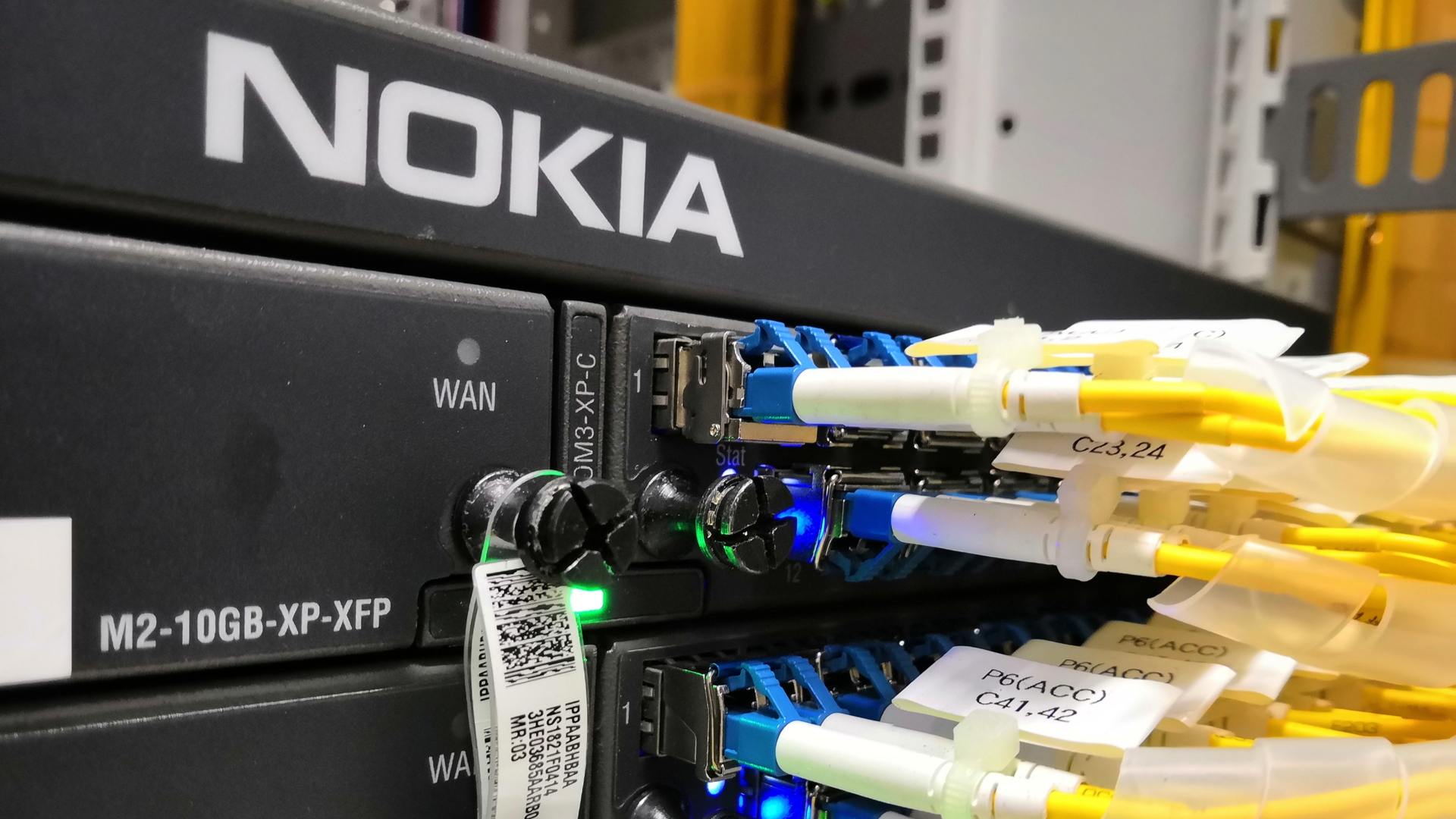Nokia begins major data centre networking gambit
The company has secured high-profile early adopters, including Apple and BT for its routers, switches, and OS


Nokia has launched a set of tools, equipment and an operating system for data centre networking to help large companies manage growing traffic in light of increased 5G and machine learning adoption.
Working in collaboration with Apple to build the technology, Nokia has launched a data centre Network Operating System (NOS) as a toolkit to allow for intent-based automation and operations in data centres. This is in addition to new routers and switches.
The company’s data centre venture is based on the idea that the data centre will overlap with cloud and telecoms networks, with technologies like 5G and the Internet of Things (IoT) causing demand for data movements to rise.
All together, Nokia’s foray will allow what it describes as ‘cloud builders’ – webscale firms, service providers and large enterprises – to scale-up and adapt their data centre environments in light of the surging traffic.
“With decades of experience serving the world’s telecom operators, we understand the engineering challenges of building and operating business and mission-critical IP networks on a global scale,” said Nokia’s president of IP and optical networks, Basil Alwan.
“However, today’s massive data centers have their own unique operational challenges. The SR Linux project was the proverbial ’clean-sheet’ rethink, drawing from our partnership with Apple and others. The resulting design is impressive in its depth and strikes the needed balance for the future.”
Nokia describes its Service Router Linux as the first fully modern microservices-based network operating system. It’s built on technology used in more than a million IP network routers, and runs standard Linux. This can be combined with the Nokia Service Router Linux NetOps development kit, which allows customers to take advantage of a rich set of programming capabilities.
Get the ITPro daily newsletter
Sign up today and you will receive a free copy of our Future Focus 2025 report - the leading guidance on AI, cybersecurity and other IT challenges as per 700+ senior executives
The Nokia Fabric Service Platform, meanwhile, has been designed to build, deploy and monitor an entire data centre network. Geared towards multi-vendor data centres, it provides businesses with a set of tools to implement intent-based and-policy-based network operations and opens up access to highly powerful services once only available to the largest enterprises. These include real-time virtual digital twins, for example.
New switches released as part of the data centre portfolio include the Nokia 7250 Interconnect Router (IXR), Nokia 7220 IXR-H series, and Nokia 7220 IXR-D series platforms. They will support 400GE, 100GE, 50G, 40GE, 25GE, 10GE, and 1GE interfaces.
The new tools have already attracted interest from several large companies, including Apple, with which Nokia has partnered with, and BT, as well as Equinix. Apple, for example, has chosen to use Nokia’s new system in its Viborg-based facility in Denmark.
“As one of the world’s leading communications services companies offering security, cloud and networking services to consumers and businesses, we consider data centre automation as a foundational technology for our telco cloud model,” said BT group chief architect, Neil McRae.
“Nokia’s new data centre fabric solution promises to provide full programmability with deep telemetry, along with a modern operational toolkit to drive the extreme automation and scaling of our telco cloud, which is critical to drive future 5G services.”
The move will see Nokia compete on a similar footing to the likes of Cisco and Huawei, having already established itself as a major provider of networking equipment for mobile data networks, playing a key role, for example, in the global 5G rollout.
Nokia’s Service Router Linux, as well as the 7250 IXR and 7220 IXR-D series switches, are available for data centre environments now. The Fabric Service Platform and 7220 IXR-H series switches will be available towards the end of 2020.

Keumars Afifi-Sabet is a writer and editor that specialises in public sector, cyber security, and cloud computing. He first joined ITPro as a staff writer in April 2018 and eventually became its Features Editor. Although a regular contributor to other tech sites in the past, these days you will find Keumars on LiveScience, where he runs its Technology section.
-
 Should AI PCs be part of your next hardware refresh?
Should AI PCs be part of your next hardware refresh?AI PCs are fast becoming a business staple and a surefire way to future-proof your business
By Bobby Hellard
-
 Westcon-Comstor and Vectra AI launch brace of new channel initiatives
Westcon-Comstor and Vectra AI launch brace of new channel initiativesNews Westcon-Comstor and Vectra AI have announced the launch of two new channel growth initiatives focused on the managed security service provider (MSSP) space and AWS Marketplace.
By Daniel Todd